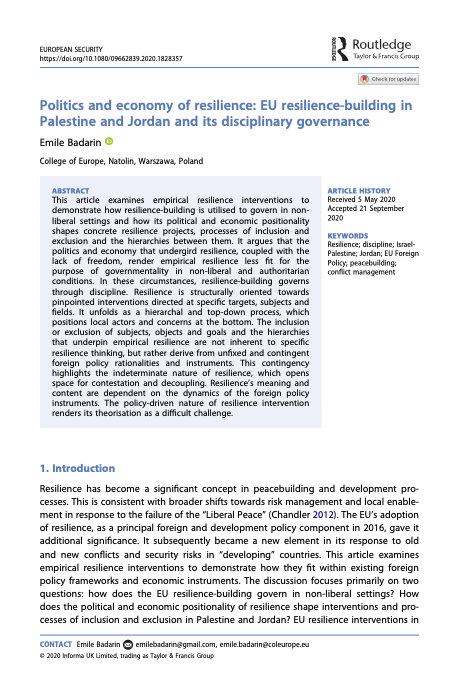This article examines empirical resilience interventions to demonstrate how resilience-building is utilised to govern in non- liberal settings and how its political and economic positionality shapes concrete resilience projects, processes of inclusion and exclusion and the hierarchies between them. It argues that the politics and economy that undergird resilience, coupled with the lack of freedom, render empirical resilience less fit for the purpose of governmentality in non-liberal and authoritarian conditions. In these circumstances, resilience-building governs through discipline.
Resilience is structurally oriented towards pinpointed interventions directed at specific targets, subjects and fields. It unfolds as a hierarchal and top-down process, which positions local actors and concerns at the bottom. The inclusion or exclusion of subjects, objects and goals and the hierarchies that underpin empirical resilience are not inherent to specific resilience thinking, but rather derive from unfixed and contingent foreign policy rationalities and instruments. This contingency highlights the indeterminate nature of resilience, which opens space for contestation and decoupling. Resilience’s meaning and content are dependent on the dynamics of the foreign policy instruments. The policy-driven nature of resilience intervention renders its theorisation as a difficult challenge.
Cite as: Badarin, Emile 2021. “Politics and economy of resilience: EU resilience-building in Palestine and Jordan and its disciplinary governance.” European Security 30.1: 65-84.

